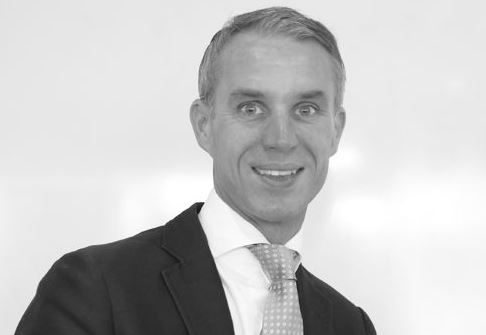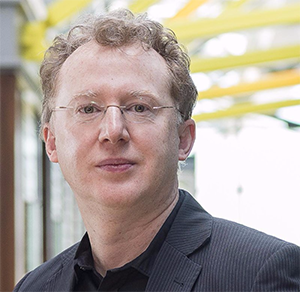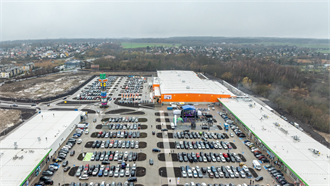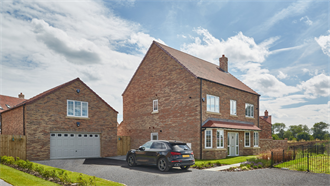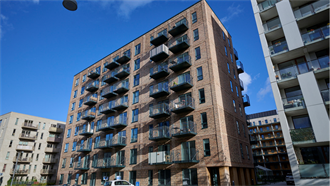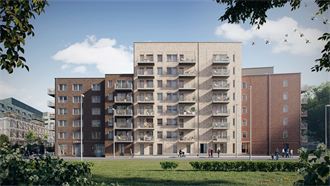Avignon Capital is experiencing 'hyper growth' which may see it reach €1 bn in assets under management by the end of this year, CFOO Patrick Flaton tells PropertyEU.
Avignon is probably best known for two 'P's: the seven successive popes who tried to rule Christendom from the south-eastern French city in the early 14th century and the city's Medieval bridge, immortalised in the song Pont d'Avignon.
Avignon Capital is a real estate asset and investment management firm that has set itself a slightly less daunting task than the popes. But it is also something of a bridge, as the UK, Germany, the Netherlands and Spain currently figure as its core markets.
Based in London, Avignon Capital has about €700 mln of assets under management across more than 100 properties on behalf of private investors, five family offices and the London-listed Cubic Property Fund.
'We have been a small boutique firm for a number of years and have experienced hyper growth in the last year to a level that is getting very interesting for the market to work with,' says Patrick Flaton.
Flaton joined as chief financial and operating officer (CFOO) in September 2016.
'Last year we were doing a deal about every two weeks,' Flaton says. 'An ambition is to reach €1 bn AUM by the end of 2017 - but this depends on sourcing deals that fit our clients' needs.'
During 2017 Avignon entered the Dutch market and opened a company office in Berlin, its first in continental Europe, and acquired its first hotel in Germany.
There have been a number of other firsts in recent months: reaching a record annual transaction volume of €563 mln for the book year 2016/2017; receiving a mandate to invest in Australia, acquiring a hotel in Germany and establishing a new property management joint venture, Platinum Property Management.
The Netherlands
Having entered Flaton's home country of the Netherlands this year, Avignon has so far acquired two hotels and an office property: Hyatt Place Amsterdam Airport Hotel (€53.8 mln); NH Hotel Amsterdam (€45 mln) and the OPCW Headquarters in The Hague (€38 mln).
Avignon Capital is attracted to the Dutch market because of its stable political and economic environment. Real estate investors can still get decent yields in the market and the bank lending market is healthy, Flaton says.
Issues in the Netherlands are that it is a small market, there are a lot of competitors and it can be difficult to find quality assets. Flaton: 'We are not interested in open tender processes and prefer to talk directly to vendors to get good deals done quickly. We have found really nice good properties for three separate transactions and will continue to look at the market to see if we can build up to a decent level'.
'We are willing and able to execute and we believe in making a good deal,' Flaton says. 'It all comes down to the execution power. Currently, there are a lot of parties interested in what's happening in the real estate market they are not always interested in doing a deal. If we step into a deal, we are going to do a deal. We believe in being successful'.
Copenhagen sale
The Danish and Norwegian capitals Copenhagen and Oslo were also significant features of the portfolio. But in early 2016 Avignon Capital sold its Louis Vuitton property in the Danish capital for €26 mln, generating a 112% return on equity.
The firm also sold a portfolio of retail assets in the city to Hines and Universal-Investment, on behalf of their €1.3 bn high-street retail mandate from German pension giant BVK. The investment volume of €119 mln reflected a 135% return on equity. And in February this year Avignon sold an office building in Oslo for €61 mln (87% ROE).
The future
Flaton does not believe Brexit will be the main driver for people to decide whether to come into or leave the UK market. 'I think it is more a currency issue. People who have their funds available in Sterling are really focusing on the UK and will always remain active in the market. This is a really big group and they will continue to invest in the UK. London will always be a very stable investment from a property point of view. The demand for property in London remains very high.'
Flaton is more concerned about the growth in the number and type of firms investing in real estate. ‘A couple of years ago we were only competing with real estate companies or companies investing in assets for the long term. These days real estate in general is also competing with, or is a substitute for the stock exchange, the securities market and the natural resources market.
‘It is so hard to get a decent yield on savings accounts or the stock exchange. As a result a lot of asset managers for banks and institutions who purely invested via the stock market or in bonds before the crisis in 2008 have now moved to hard core real estate investment.'
Flaton added: 'I think it could be a big risk that companies are investing in something they view as a financial product, as they may not understand the underlying principles of property. My advice to investors is that if they want to invest in real estate they should find a partner with a long track record and deep knowledge of the sector.'

